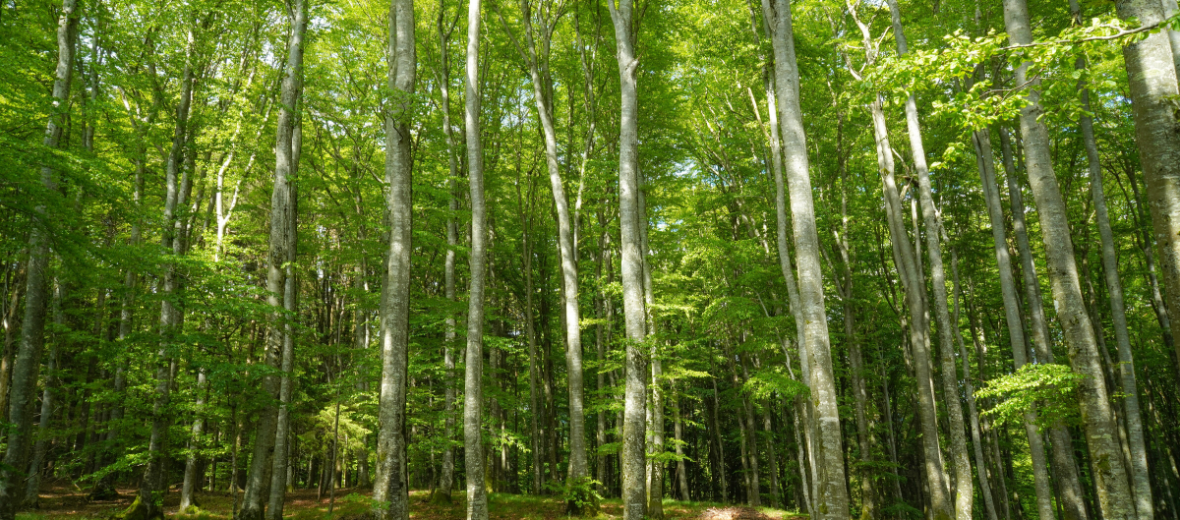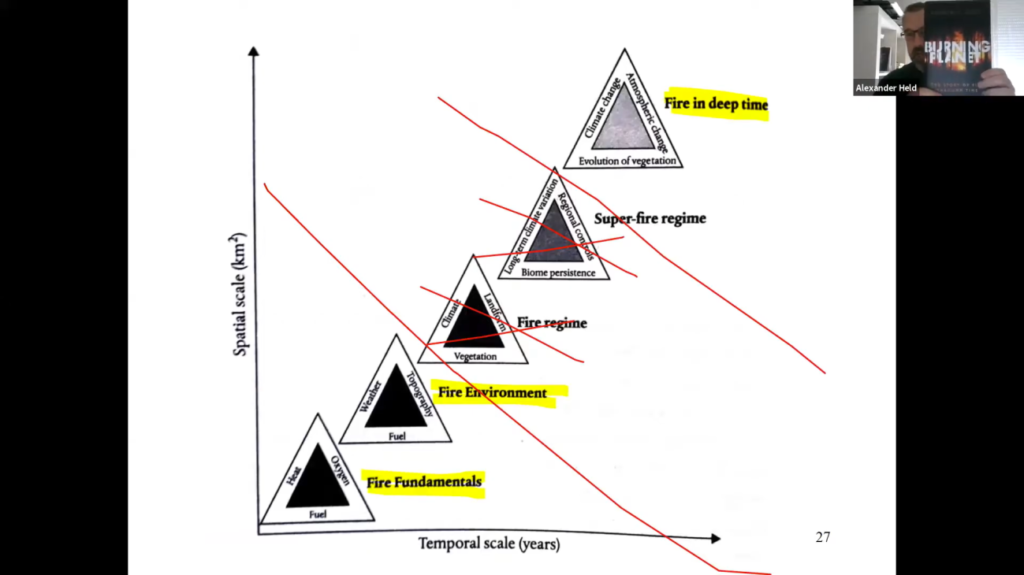
PyroLife International Symposium: Towards an Integrated Fire Management
Highlights from the fifth PyroLife Symposium webinar on July 01, 2020 by Abbey Marcotte and Mariña Fernández.
During his presentation, Alexander [Alex] Held drove us through the North Western Europe, particularly Germany, in order to understand how regions that have historically been non-fire prone are facing the new reality of wildfires. Fire in these areas is creating a very complex situation of values that should be considered to understand the current situation and their adaptation to new and evolving fire risks.
Considering the fire services, fire personnel are skilled and well-prepared. However, fires have changed and are not stationary anymore and instead they move through the landscape. Thus fire services are becoming overwhelmed with a new phenomenon of vegetation fire. Dealing with these transient fires requires new techniques and tactics.
On the other hand, there is the landscape. Although the structure of many forest in this regions shows it is resilient to different disturbances, the current consequence of long-term periods of drought that are seemingly affecting this landscape resilience. Moreover, climate change is a serious reality not only in Europe, but globally. During the last decades, data show a severe rain deficit and a trend in the increasing temperatures. We have moved beyond the stage of saying ‘Do we have climate change?’ These shifting seasonal trends combined with the annual increment of available fuel forests has developed a new fire situation where both burnt area and number of wildfires have increased. The final but most complicated factor involved is people. Communities present an organized society with certain lifestyle, attitudes and perceptions on life that are transmitted by differing opinions which represent the set of values of their society. These established values create situations where fire and perceptions are analyzed from a simplistic approach. As a result, society is far to accept living with fire, although prerequisites for large fires —ignition source, severe fire weather and large continuous accumulation of fuel— are already present in their landscapes.

Therefore, the challenge in historically non-fire-prone countries, such as Germany, is changing these stable socio-cultural resilient systems and their traditional ideals of risk culture built over the denial of living with many kinds of fire. In this sense, understanding the risk is the biggest challenge since there are little to no historical fire regimes to reference in order to help understand the problem, further appealing to the attitude that ‘fires do not belong here’ and should be suppressed. Knowledge exchange between countries are historically non-fire prone and countries that have been dealing with fire for decades is essential.

In this regard, integrated fire management strategy appears as the best tool for creating resilient landscapes, adapting communities, and creating adequate responses to future fire events. Fire management strategy stands over five elements: Prevention, Preparedness, Response, Impacts and Restoration and Adaptation, and should cover each aspect of them. However the reality is that the vast majority of these countries are mostly investing in response, (emergency management) instead of prevention (land or forest management: “All policies are going towards suppressing fires since we historically don’t have fires and we don’t want them here either.” -Alex
To confront the coming scenarios regarding wildfires, politicians and society should support investments not only in response because fire services must be prepared in order to cope with this extreme wildfires and to avoid small fires growing into larger. But also invest on resilience and mitigation by fuel reduction practices to reduce fire intensity and improve, at the same time, the fire suppression capability for wildfires. To conclude, Alex stress that we needchange. Not necessarily change in fire risk management, but additionally a change in our risk culture, perceptions, opinions, and values.
“We need change, and for that you need a lot of friends. Make them before you need them… You need reassurance because you will be alone… if you really want to be the change that is allowing for better or integrated fire management or living with fire… You will need the support of that network. Invest time in people and relationships. This is all the difference. The rest is technical and we can learn it. People skills and making friends is really complicated. So only with friends can we be the change.”
– Alexander Held




Leave a Reply